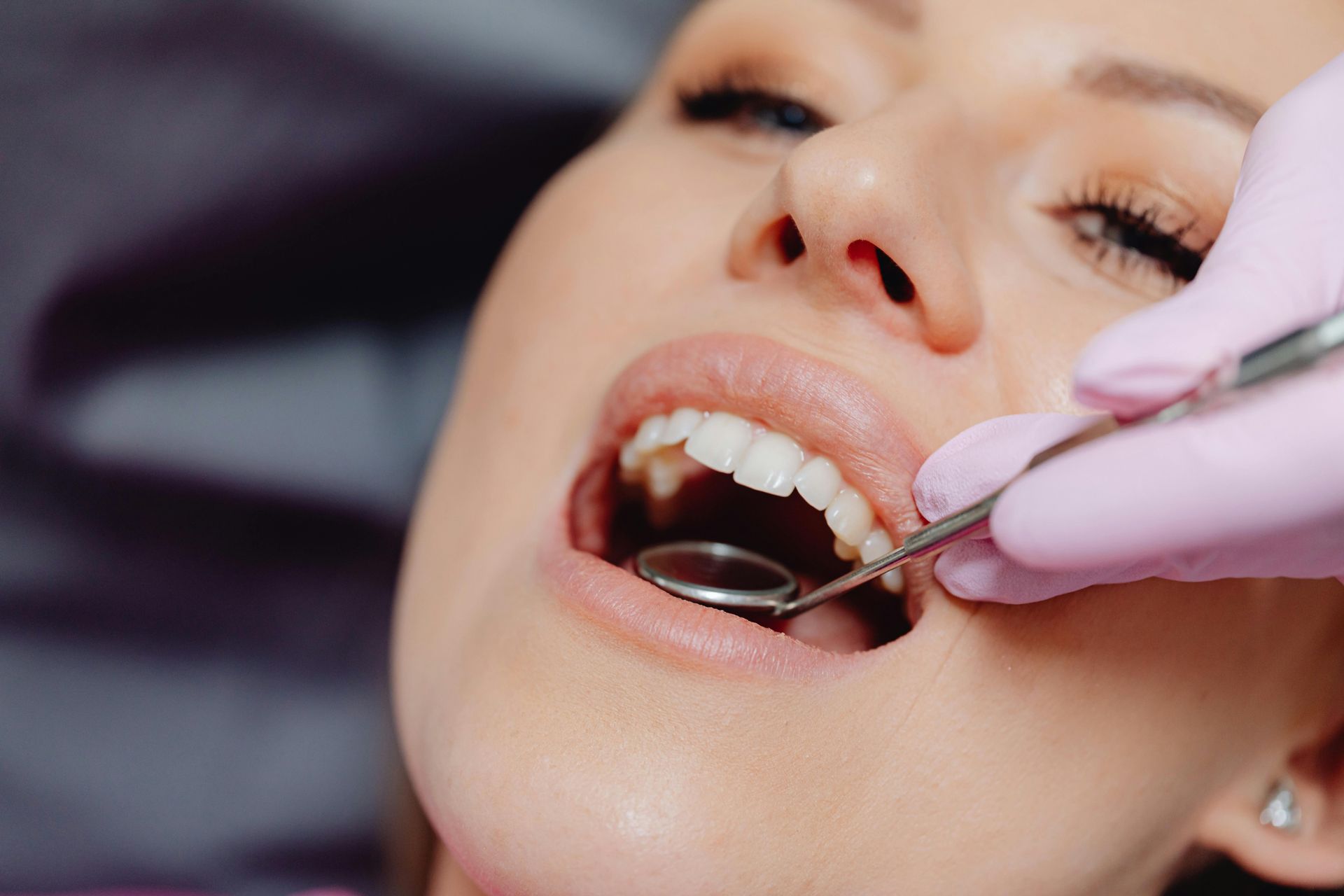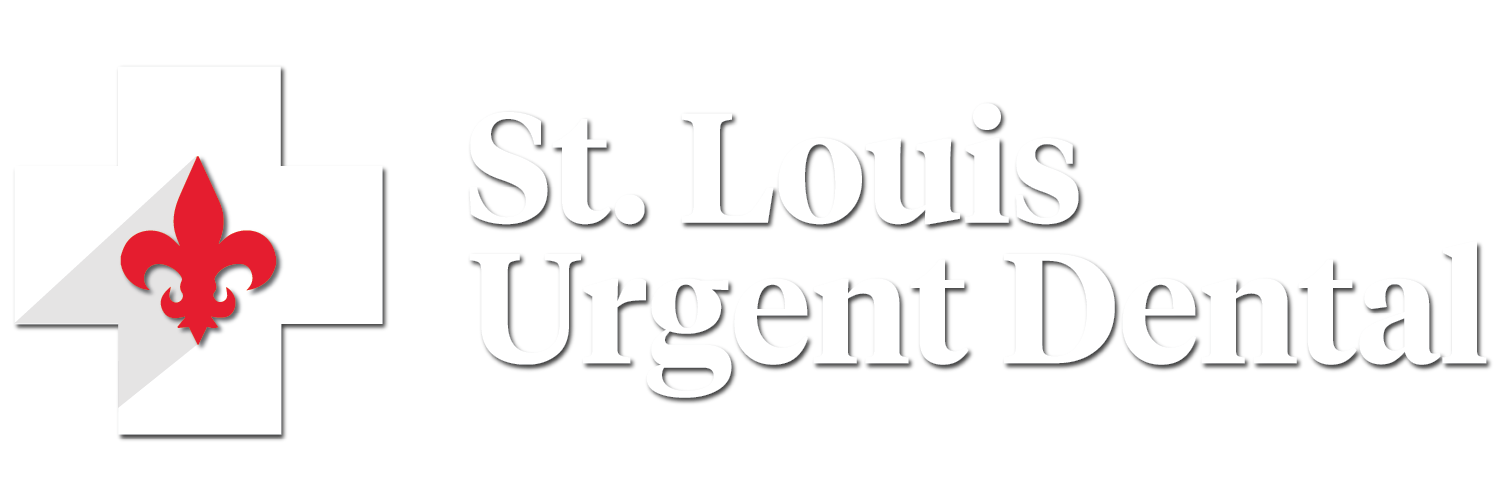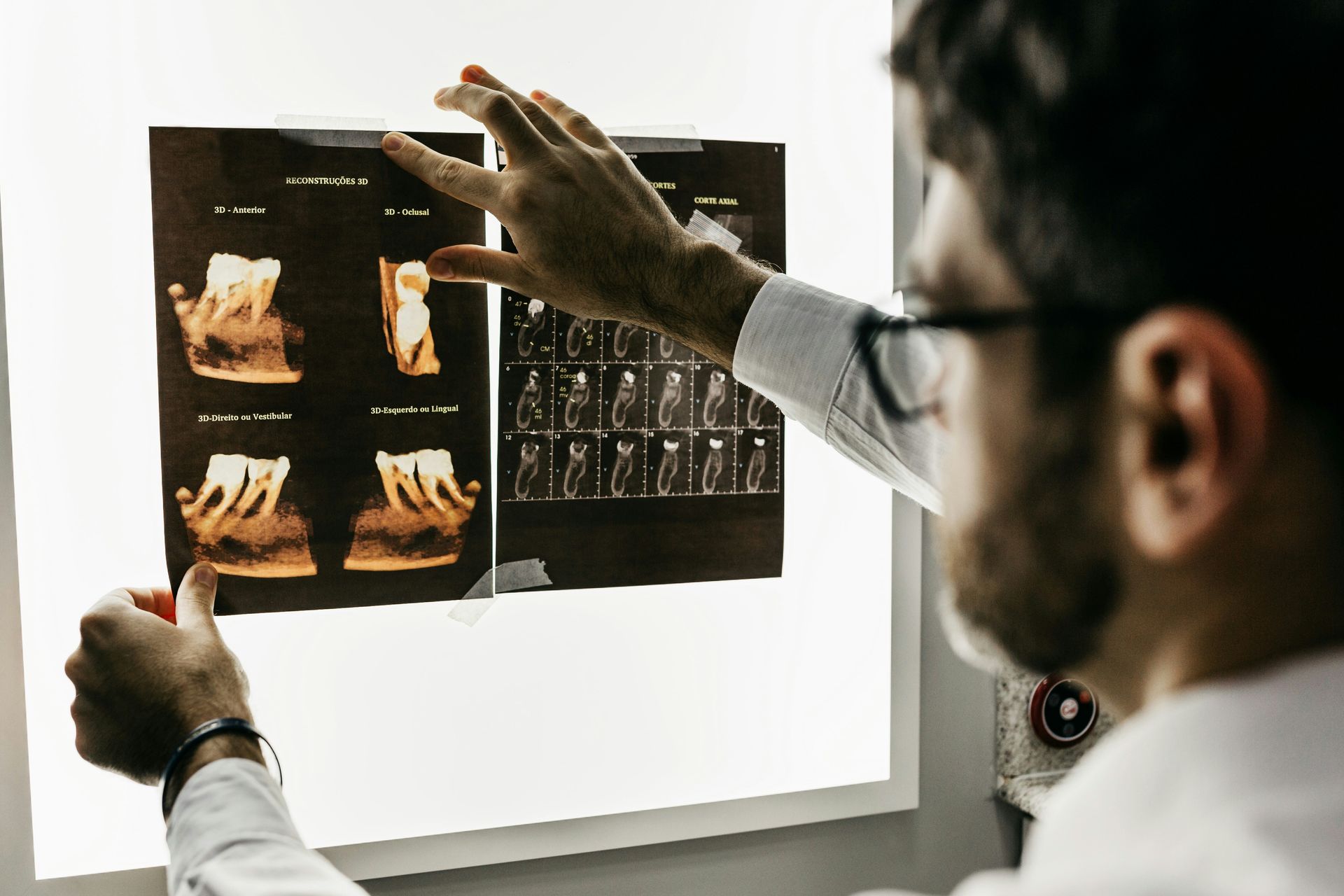A Practical Guide of Options For Missing Teeth
Modern dentistry has made great strides. Thanks to advanced treatments and preventive care, dentists can now save many teeth that would have required extraction in the past.
Still, dental emergencies, trauma, and advanced decay can make tooth loss unavoidable. When that happens, quickly replacing a missing tooth is key to protecting your oral health and preserving your smile.
Knowing your replacement options can help you make an informed decision and prevent further complications, whether you've recently had a tooth removed or lost one due to injury.
Why It's Important to Replace a Missing Tooth
Losing a tooth isn't just a cosmetic issue. The effects of a missing tooth can extend far beyond the gap you see in your smile.
Over time, the jawbone that once supported the lost tooth can begin to shrink, a process known as bone resorption. This bone loss can cause nearby teeth to drift or tip into the space.
In addition, the tooth opposite the gap (in the upper or lower jaw) may begin to shift downward or upward into the space because there's nothing to bite against. These movements can lead to several problems.
- Increased risk of cavities and gum disease
- Uneven pressure on certain teeth
- Difficulty chewing
- Jaw joint (TMJ) discomfort
- Changes in your facial appearance
The longer you wait to replace a missing tooth, the more likely these complications will arise—sometimes quietly and gradually. Exploring tooth replacement options early is essential, especially after an emergency extraction or injury.

Common Reasons for Tooth Loss
There are several situations where tooth removal becomes necessary, even with today's advanced dental care.
- Traumatic injuries or accidents
- Severe tooth fractures
- Untreated decay that reaches the tooth's root
- Advanced gum disease (periodontitis)
- Infections or abscesses requiring emergency extractions
In all these cases, timely replacement of the missing tooth helps prevent further damage and restores your ability to eat and speak comfortably.
What Are Your Tooth Replacement Options?
Fortunately, today's dentistry offers several effective options for replacing missing teeth. Each has pros and cons; the right choice depends on your needs, budget, and oral health condition.
Removable Bridges (Partial Dentures)
Removable bridges are one of the most affordable ways to replace one or more missing teeth.
These devices consist of artificial teeth attached to a base with metal clasps that hook onto your natural teeth. They can be taken out for cleaning and sleeping.
- Pros: Budget-friendly, helpful for complex cases
- Cons: Metal clasps may be visible, not as natural-looking as other options
Removable bridges can be a good short-term or long-term solution, especially if fixed options aren't possible due to the condition of surrounding teeth.
Fixed Bridges
A fixed bridge uses two healthy teeth on either side of the missing tooth to anchor a permanent replacement.
These neighboring teeth are crowned (capped), and a replacement tooth is suspended between them.
- Pros: Sturdy, natural-looking, non-removable
- Cons: Requires reshaping two healthy teeth
Fixed bridges are a great option if you want a stable, long-lasting solution and your surrounding teeth are strong enough to support the structure.
Dentures
Full or partial dentures may be recommended if you miss most or all of your teeth in one arch (upper or lower).
Dentures are removable appliances that are custom-made to fit your mouth and restore the look and function of your natural teeth.
- Pros: Restores appearance and chewing function, non-invasive
- Cons: Takes time to adjust, may need occasional refitting
Modern dentures are much more comfortable and natural-looking and remain reliable for many patients.
Dental Implants
Dental implants are considered the gold standard for tooth replacement.
An implant consists of a small titanium post surgically placed in the jawbone. This post acts as an artificial root, and a custom-made crown is attached to it.
- Pros: Looks and feels like a natural tooth, prevents bone loss, and is very durable
- Cons: Higher upfront cost, requires healthy bone, and healing time
Implants can also support bridges or dentures, giving them stability and comfort. While they require a surgical procedure, the long-term benefits often outweigh the initial investment.

Don't Wait—Act Early to Protect Your Smile
Tooth replacement isn't just about appearance—it's about maintaining a healthy bite, preventing shifting teeth, and preserving your ability to chew comfortably.
The sooner you act, the more options you'll have, and the less likely you will face costly or complex problems later.
Talk to STL Urgent Dental Today
If you've recently lost a tooth or had one removed due to injury or infection, don't wait to get help.
Replacing a missing tooth promptly can protect your long-term health and restore your confidence.
Our St. Louis Urgent Dental team is here to help with your urgent, after-hours dental needs! We are open seven days a week (until 9 pm on M-F). To best serve Greater St. Louis, we have three clinics throughout the region.
Please note that we do not perform regular cleanings or non-emergency cosmetic procedures.
We are ready to help with dental emergencies, including root canals, crowns, socket grafting, extractions, implants, broken teeth, and more.
Our procedure pricing and other details are on our website.
Schedule an appointment, and you'll be smiling again in no time.









